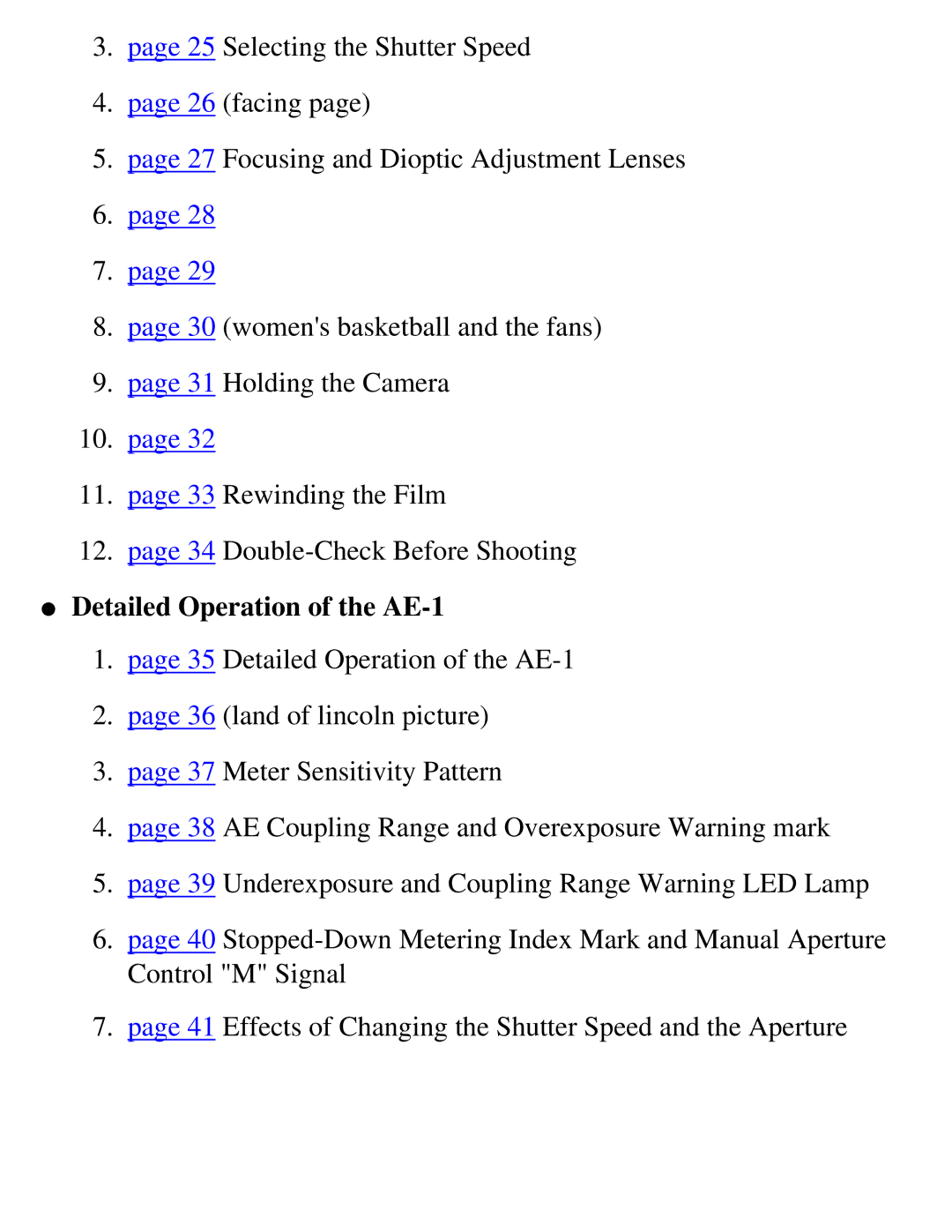AE-1 specifications
The Canon AE-1, released in 1976, is a groundbreaking 35mm SLR camera that marked a pivotal shift in photography technology. It was one of the first cameras to incorporate a microprocessor, setting the stage for future advancements in the field.One of the standout features of the AE-1 is its automatic exposure system, which allows photographers to choose between manual and shutter priority modes. This flexibility makes it an ideal choice for both beginners and seasoned professionals. In shutter priority mode, the photographer can set the shutter speed, while the camera automatically selects the appropriate aperture for optimal exposure. This feature was revolutionary at the time, providing users with greater control and versatility in their photography.
The camera is equipped with a Canon FD lens mount, which supports a wide array of lenses, allowing photographers to experiment with different focal lengths and depths of field. The standard lens often bundled with the AE-1 is the Canon FD 50mm f/1.8, known for its sharpness and low-light capabilities. This compatibility with various lenses is one of the key advantages of the AE-1.
Another notable characteristic of the AE-1 is its compact and lightweight design, making it a portable choice for photographers on the go. It features a durable plastic body, which conveys reliability without added bulk. The viewfinder offers a bright and clear display, with a match-needle exposure indicator that assists users in achieving the perfect exposure balance.
The Canon AE-1 utilizes a horizontally traveling, metal focal plane shutter that supports a range of shutter speeds, from 1/1000 to 2 seconds, along with a bulb mode for long exposures. This versatility enables photographers to freeze fast action or capture beautiful night scenes, broadening the creative possibilities.
Battery operation is facilitated by a 6V battery, giving the camera ample power for consistent performance. The built-in light meter, which provides real-time exposure readings, further enhances the user experience, ensuring accurate exposure in various lighting conditions.
Overall, the Canon AE-1 remains a beloved classic in the realm of film photography. Its innovative features, user-friendly design, and compatibility with an extensive range of lenses contributed to its iconic status. The AE-1 not only advanced camera technology but also inspired countless photographers to explore the art of capturing images, solidifying its legacy as a staple in the history of photography.
